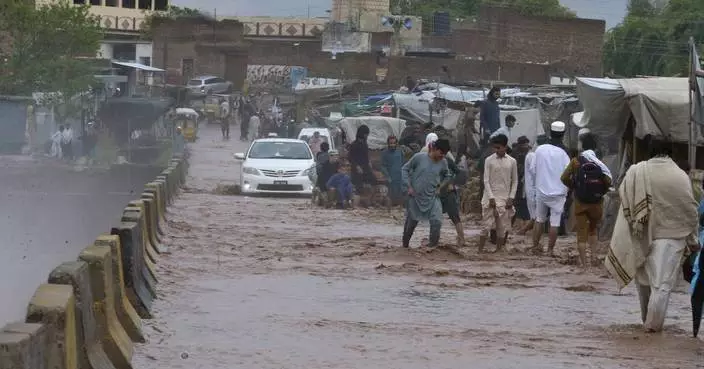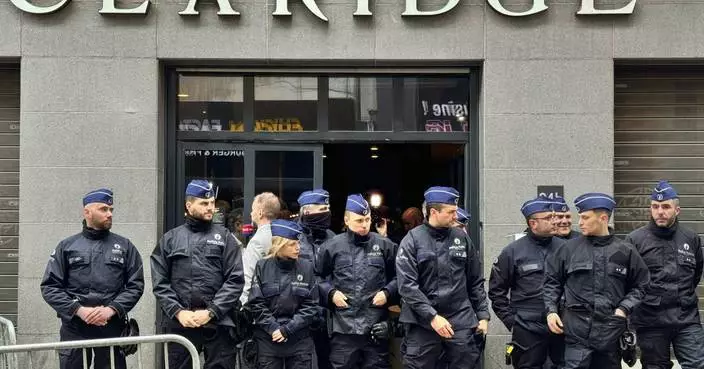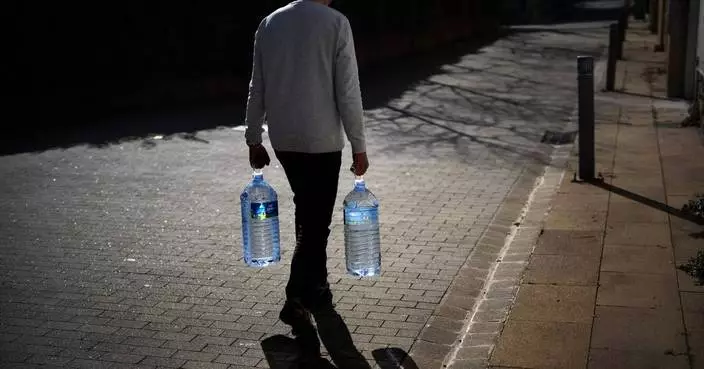A U.N. court's decision Wednesday to uphold the genocide and war crimes convictions of ex-Bosnian Serb President Radovan Karadzic and sentence him to life behind bars was applauded by survivors of Bosnia's bloody '90s war — but blasted by the country's Serbs as biased.
Gathered in a memorial center near this eastern Bosnian town that was the scene of Europe's worst carnage since World War II, many wept and applauded as United Nations appeals judges in the Hague, Netherlands, increased Karadzic's sentence from 40 years to life imprisonment on Wednesday.
Click to Gallery
A U.N. court's decision Wednesday to uphold the genocide and war crimes convictions of ex-Bosnian Serb President Radovan Karadzic and sentence him to life behind bars was applauded by survivors of Bosnia's bloody '90s war — but blasted by the country's Serbs as biased.
The contrasting reactions reflect persisting divisions in Bosnia, long after the country's 1992-95 war ended.
The verdict, the party insisted, is "baseless and scandalously unjust."
He was also convicted of other war crimes committed during the 1992-95 war that killed some 100,000 people — including the years-long shelling and siege of Sarajevo.
Bosnia's war ended in a U.S.-brokered peace agreement that formed a Muslim-Croat and a Bosnian Serb entity in Bosnia, joined in a loose common government.
Former Bosnian Serb leader Radovan Karadzic enters the court room of the International Residual Mechanism for Criminal Tribunals in The Hague, Netherlands, Wednesday, March 20, 2019. Nearly a quarter of a century since Bosnia's devastating war ended, Karadzic is set to hear the final judgment on whether he can be held criminally responsible for unleashing a wave of murder and destruction. United Nations appeals judges will on Wednesday rule whether to uphold or overturn Karadzic's 2016 convictions for genocide, crimes against humanity and war crimes, as well as his 40-year sentence. (AP PhotoPeter Dejong, Pool)
Former Bosnian Serb leader Radovan Karadzic enters the court room of the International Residual Mechanism for Criminal Tribunals in The Hague, Netherlands, Wednesday, March 20, 2019. Nearly a quarter of a century since Bosnia's devastating war ended, Karadzic is set to hear the final judgment on whether he can be held criminally responsible for unleashing a wave of murder and destruction. United Nations appeals judges will on Wednesday rule whether to uphold or overturn Karadzic's 2016 convictions for genocide, crimes against humanity and war crimes, as well as his 40-year sentence. (AP PhotoPeter Dejong, Pool)
But while Bosnia's Muslims hailed the ruling as bringing at least some justice for Karadzic's victims, Serbs in Bosnia remained defiant, most of them stressing that the ruling is yet more proof that the United Nations judges are unfair.
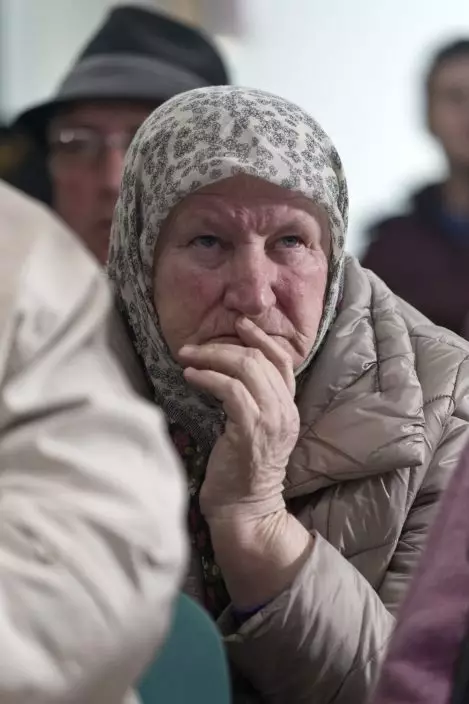
A relative of victims of the Srebrenica genocide awaits the decision of the UN appeals judges on former Bosnian Serb leader Radovan Karadzic in Potocari, Bosnia and Herzegovina, Wednesday, March 20, 2019. United Nations appeals judges on Wednesday upheld the convictions of Karadzic for genocide, war crimes and crimes against humanity, and increased his sentence from 40 years to life imprisonment. (AP PhotoMarko Drobnjakovic)
The contrasting reactions reflect persisting divisions in Bosnia, long after the country's 1992-95 war ended.
The ruling was a "complete injustice for Serbs, for our history," declared Gradimir Miladinovic, from the Bosnian Serb town of Pale, the Bosnian Serb wartime stronghold outside Sarajevo. "He (Karadzic) was our president and he remains our president."
Bosnian Serb Prime Minister Radovan Viskovic complained that "no one has been held responsible for the crimes against Serbs," while Karadzic's Serb Democratic Party said the Hague court's only goal was "vilification of the Serb people."
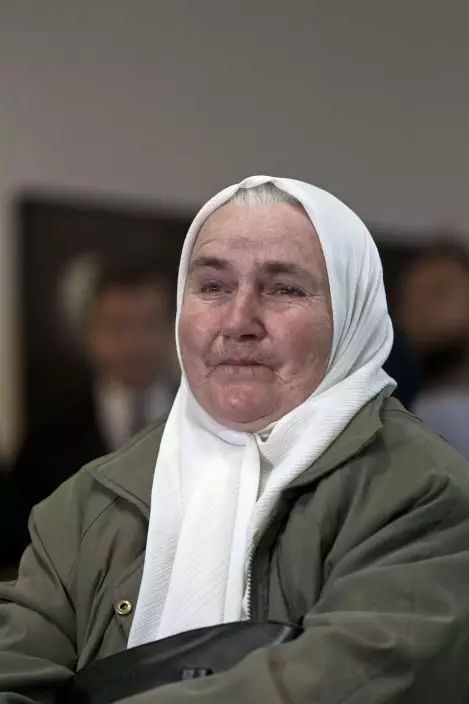
A relative of victims of the Srebrenica genocide cries as she hears the news on the decision of the UN appeals judges on former Bosnian Serb leader Radovan Karadzic in Potocari, Bosnia and Herzegovina, Wednesday, March 20, 2019. United Nations appeals judges on Wednesday upheld the convictions of Karadzic for genocide, war crimes and crimes against humanity, and increased his sentence from 40 years to life imprisonment. (AP PhotoMarko Drobnjakovic)
The verdict, the party insisted, is "baseless and scandalously unjust."
The Serb member of Bosnia's multi-ethnic presidency, Milorad Dodik, described Wednesday's ruling as "arrogant and cynical."
Karadzic was one of the chief architects of the devastation of Bosnia's war. He and wartime commander Gen. Ratko Mladic were convicted of genocide in the Srebrenica massacre, when Serb forces slaughtered some 8,000 Muslim men and boys in 1995.
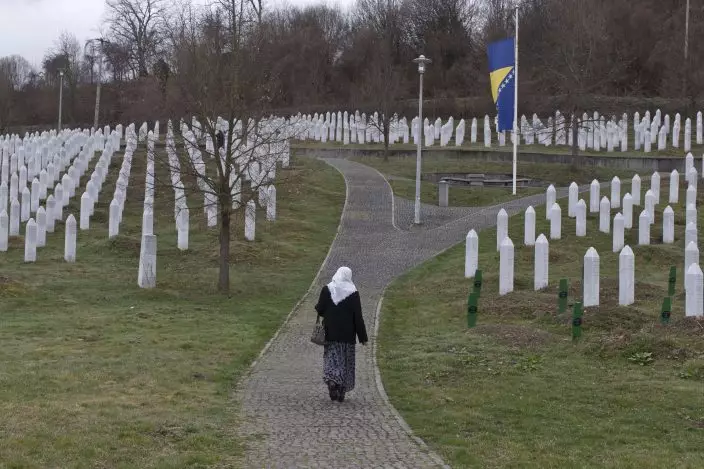
A woman walks through the cemetery of the Potocari memorial center for victims of the Srebrenica genocide in Potocari, Bosnia and Herzegovina, Wednesday, March 20, 2019. United Nations appeals judges on Wednesday upheld the convictions of former Bosnian Serb leader Radovan Karadzic for genocide, war crimes and crimes against humanity, and increased his sentence from 40 years to life imprisonment. (AP PhotoMarko Drobnjakovic)
He was also convicted of other war crimes committed during the 1992-95 war that killed some 100,000 people — including the years-long shelling and siege of Sarajevo.
Relatives of the war's victims expressed relief.
"I am glad that I lasted long enough to see justice being served," said Fazila Efendic, whose husband and son were among the 8,000 Muslim men and boys killed in Srebrenica. "He (Karadzic) got what I expected, what he deserved, what is right."
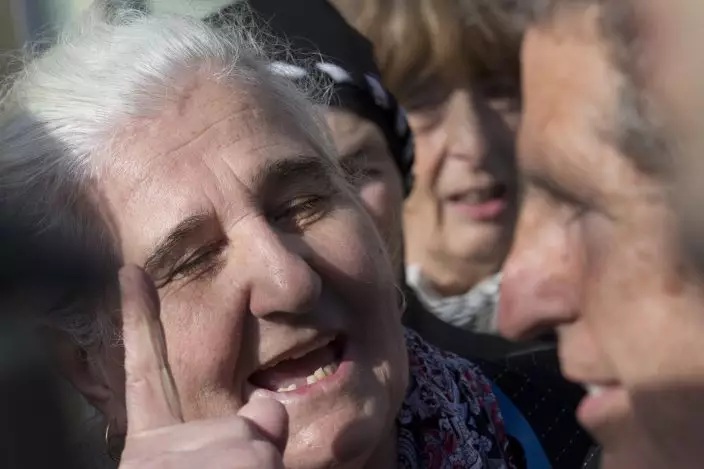
Munira Subasic of the Mothers of Srebrenica, left, haggles Peter Robinson of the U.S., lawyer for former Bosnian Serb leader Radovan Karadzic, after the court upheld Karadzic's conviction at International Residual Mechanism for Criminal Tribunals in The Hague, Netherlands, Wednesday, March 20, 2019. Nearly a quarter of a century since Bosnia's devastating war ended, Karadzic heard the final judgment upholding 2016 convictions for genocide, crimes against humanity and war crimes, and an increase from his 40-year sentence to life. (AP PhotoPeter Dejongl)
Bosnia's war ended in a U.S.-brokered peace agreement that formed a Muslim-Croat and a Bosnian Serb entity in Bosnia, joined in a loose common government.
International officials in Bosnia urged the former foes to respect the ruling from The Hague and move on along the path of reconciliation.
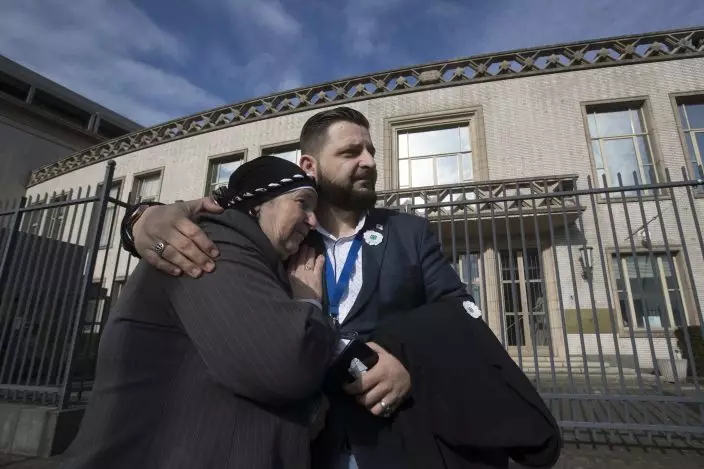
Aisha Omerovic of the Mothers of Srebrenica, is comforted after the court upheld the convictions of former Bosnian Serb leader Radovan Karadzic at International Residual Mechanism for Criminal Tribunals in The Hague, Netherlands, Wednesday, March 20, 2019. Nearly a quarter of a century since Bosnia's devastating war ended, Karadzic heard the final judgment upholding 2016 convictions for genocide, crimes against humanity and war crimes, and increased his 40-year sentence to life. (AP PhotoPeter Dejongl)
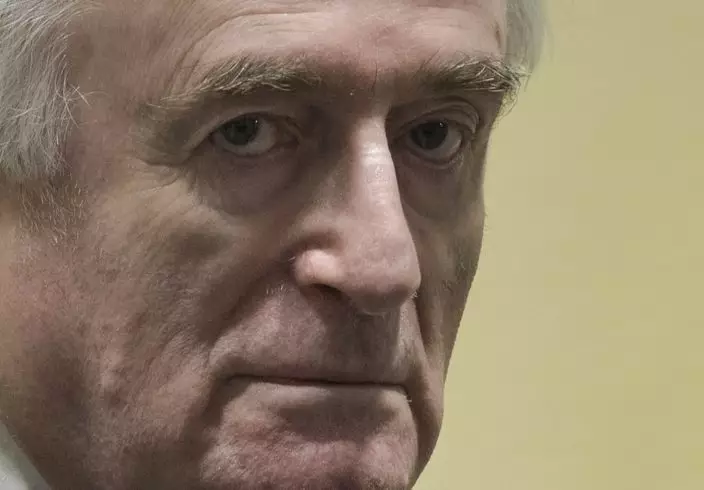
Former Bosnian Serb leader Radovan Karadzic enters the court room of the International Residual Mechanism for Criminal Tribunals in The Hague, Netherlands, Wednesday, March 20, 2019. Nearly a quarter of a century since Bosnia's devastating war ended, Karadzic is set to hear the final judgment on whether he can be held criminally responsible for unleashing a wave of murder and destruction. United Nations appeals judges will on Wednesday rule whether to uphold or overturn Karadzic's 2016 convictions for genocide, crimes against humanity and war crimes, as well as his 40-year sentence. (AP PhotoPeter Dejong, Pool)
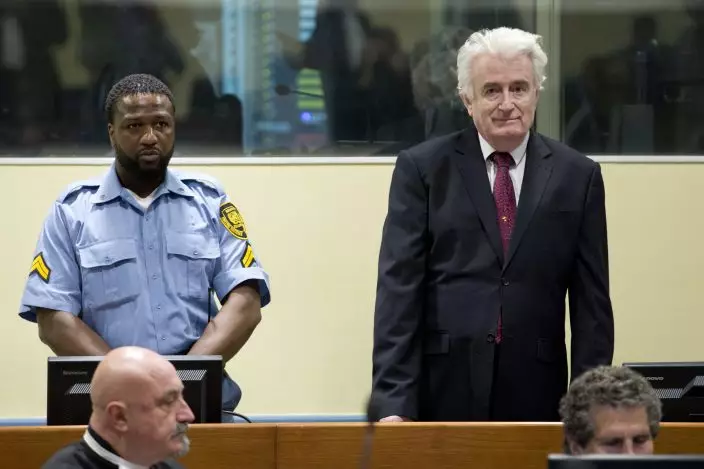
Former Bosnian Serb leader Radovan Karadzic enters the court room of the International Residual Mechanism for Criminal Tribunals in The Hague, Netherlands, Wednesday, March 20, 2019. Nearly a quarter of a century since Bosnia's devastating war ended, Karadzic is set to hear the final judgment on whether he can be held criminally responsible for unleashing a wave of murder and destruction. United Nations appeals judges will on Wednesday rule whether to uphold or overturn Karadzic's 2016 convictions for genocide, crimes against humanity and war crimes, as well as his 40-year sentence. (AP PhotoPeter Dejong, Pool)
PARIS (AP) —
Reuters photographer Mohammed Salem captured this year’s prestigious World Press Photo of the Year award Thursday with a depiction of loss and sorrow in Gaza, a heartrending photo of a Palestinian woman cradling the body of her young niece. The photograph, taken in Khan Younis just days after Salem’s own child was born, shows 36-year-old Inas Abu Maamar holding five-year-old Saly, who was killed along with her mother and sister when an Israeli missile struck their home.
Salem, who is Palestinian, described this photo filed Nov. 2 last year, as a “powerful and sad moment that sums up the broader sense of what was happening in the Gaza Strip.”
The image ”truly encapsulates this sense of impact,” said global jury chair Fiona Shields, The Guardian newspaper's head of photography. “It is incredibly moving to view and at the same time an argument for peace, which is extremely powerful when peace can sometimes feel like an unlikely fantasy,” she added.
The World Press Photo jury praised the shot’s sense of care and respect and its offering of a “metaphorical and literal glimpse into unimaginable loss.”
This is not the first time Salem has been recognized for his work on the Israeli-Palestinian conflict; he received a World Press Photo award more than a decade ago for another depiction of the human toll of conflict in the Gaza strip.
In the three other global categories announced Thursday, South Africa’s Lee-Ann Olwage won Photo Story of the Year for her touching series “Valim-babena,” featured in GEO magazine. The project focused on the stigmatization of dementia in Madagascar, a topic she explored through intimate portraits of “Dada Paul” and his family. Lack of public awareness surrounding dementia means that people displaying symptoms of memory loss are often stigmatized.
In the series, “Dada Paul,” who has lived with dementia for 11 years, is tenderly cared for by his daughter Fara. One of the standout images in the series shows him preparing for church with his granddaughter Odliatemix, capturing moments of normalcy and warmth amidst the challenges of dementia.
Photographer Alejandro Cegarra, a Venezuelan native who migrated to Mexico in 2017, won the Long-Term Project award for “The Two Walls,” published by The New York Times and Bloomberg. Cegarra’s project, initiated in 2018, examines a shift in Mexico’s immigration policies, which have moved from being historically open to enforcing strict regulations at its southern border. The jury said the photographer's perspective as a migrant gave it a “sensitive," human-centered perspective, according to a press release.
Julia Kochetova of Ukraine won the Open Format award for “War Is Personal.” The project stood out from coverage of the ongoing conflict by offering a personal look at the harsh realities of war. On a dedicated website, she merged traditional photojournalism with a diary-like documentary style, incorporating photography, poetry, audio clips and music.
The Associated Press won the Open Format award in the regional Africa category with the multimedia story “Adrift,” created by journalists Renata Brito and Felipe Dana. The story investigates the fate of West African migrants who attempted to reach Europe via a treacherous Atlantic route but ended up on a ghost ship discovered off Tobago. The team’s compelling use of photography, cinematography and detailed narrative, enhanced by expert design and multimedia elements, highlights the perils faced by migrants and the human stories behind global migration issues.
The Associated Press' Ebrahim Noroozi won the Asia Stories award for his series “Afghanistan on the Edge,” which documents the country since the Taliban took over in August 2021.
World Press Photo is an independent, nonprofit organization based in the Netherlands, founded in 1955.
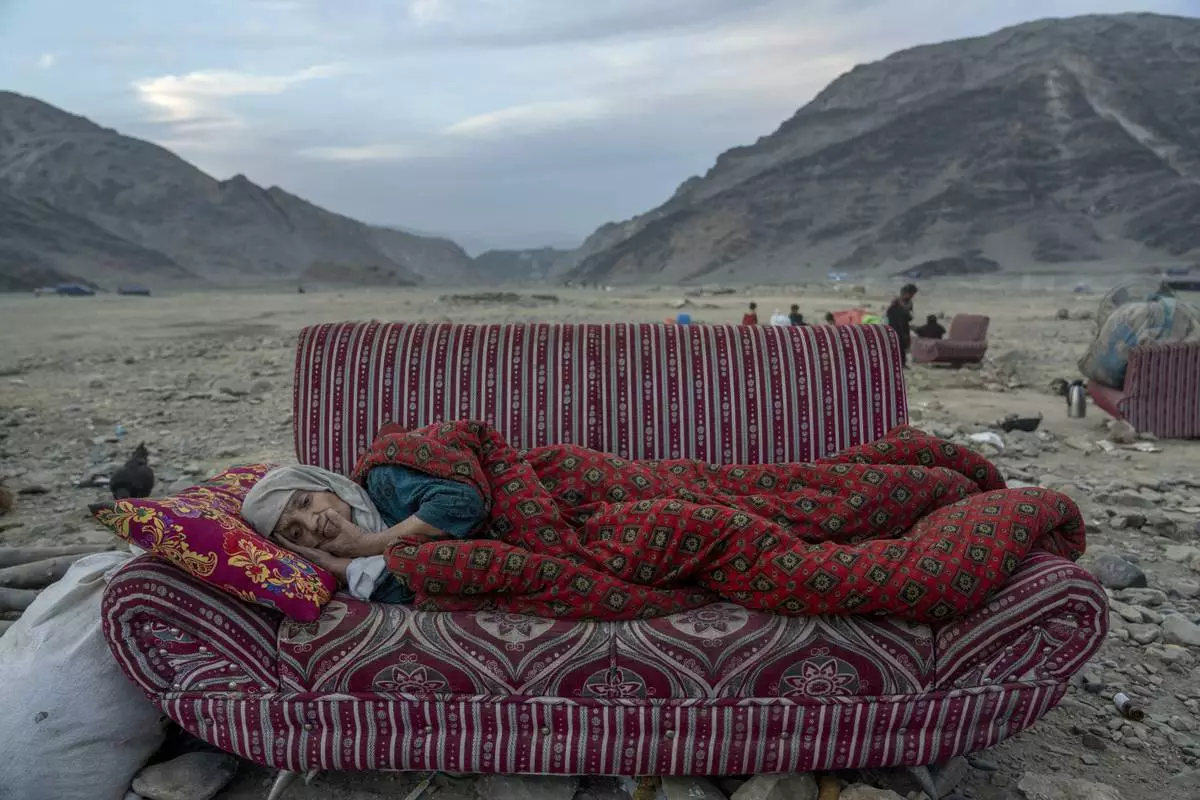
This image provided by World Press Photo is part of a series titled Afghanistan on the Edge by Ebrahim Noroozi, Associated Press, which won the World Press Photo Asia Series category and showsAn Afghan refugee rests in the desert next to a camp near the Torkham Pakistan-Afghanistan border, in Torkham, Afghanistan, Friday, Nov. 17, 2023. A huge number of Afghans refugees entered the Torkham border to return home hours before the expiration of a Pakistani government deadline for those who are in the country illegally to leave or face deportation. (AP Photo/Ebrahim Noroozi)
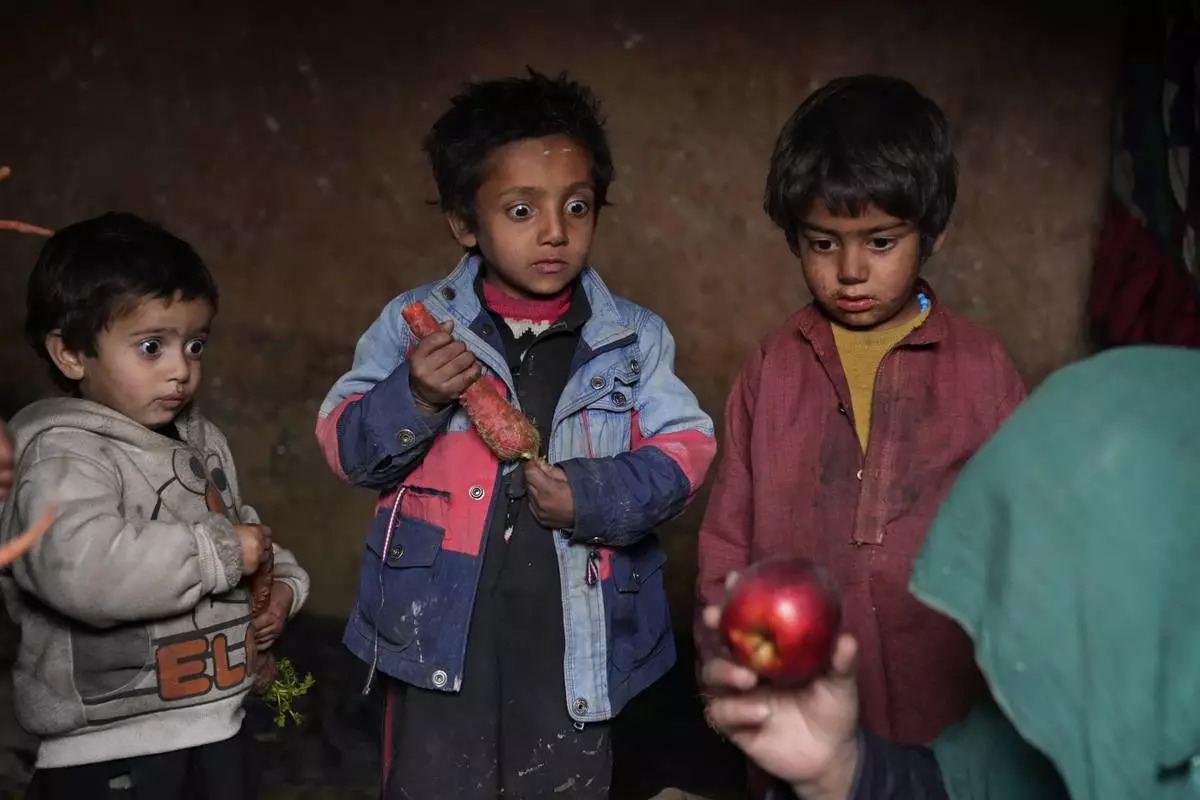
This image provided by World Press Photo is part of a series titled Afghanistan on the Edge by Ebrahim Noroozi, Associated Press, which won the World Press Photo Asia Series category and shows : Since the chaotic Taliban takeover of Kabul on Aug. 15, 2021, an already war-devastated economy once kept alive by international donations alone is now on the verge of collapse. There isn't enough money for hospitals. The World Health Organization is warning of millions of children suffering malnutrition, and the U.N. says 97% of Afghans will soon be living below the poverty line. Three Afghan internally displaced children look with surprise at an apple that their mother brought home after begging, in a camp on the outskirts of Kabul, Afghanistan, Thursday, Feb 2, 2023. (AP Photo/Ebrahim Noroozi)
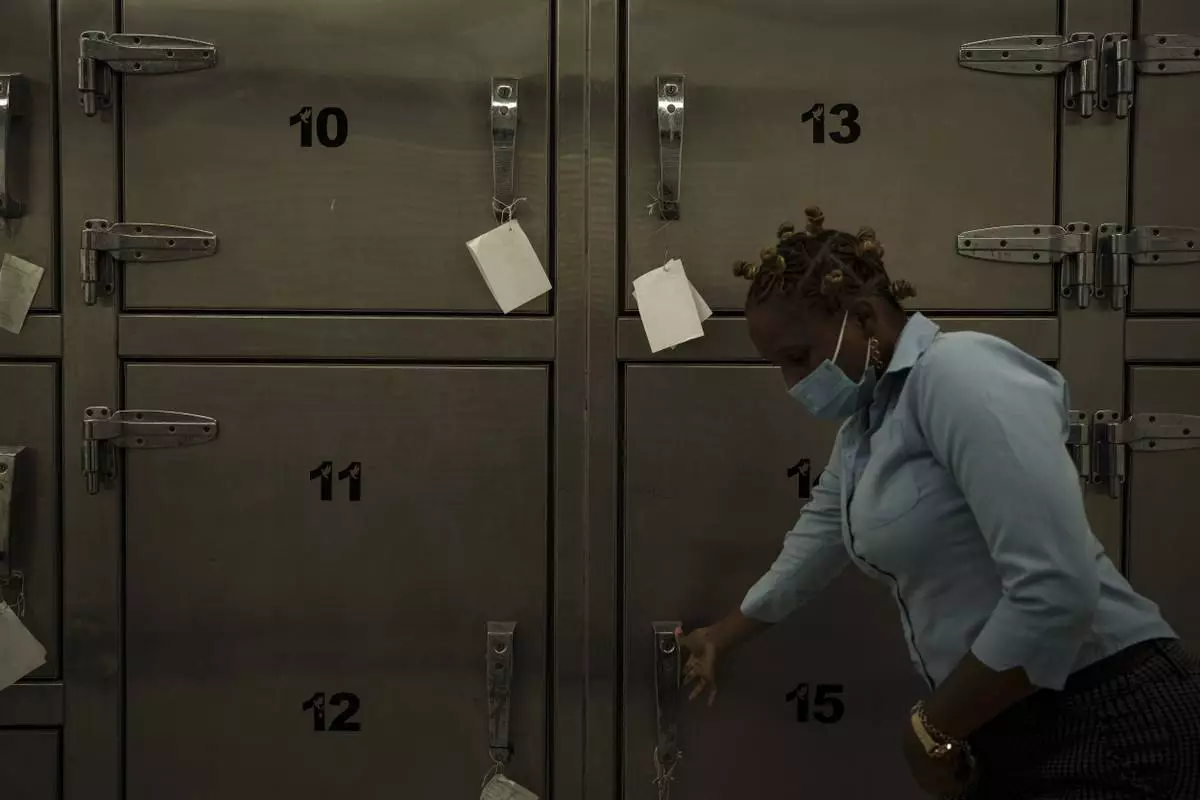
This image provided by World Press Photo is part of a multimedia project by Associated Press' Renata Brito and Felipe Dana titled Adrift, won the World Press Photo Africa Regional Winner Open Format category and shows a mortuary technician opening the door of a refrigerator used to store the remains of migrants recovered from inside the Mauritania boat that appeared drifting near the island of Tobago, in Scarborough, Trinidad and Tobago, Tuesday, Jan. 25, 2022. In May 2021 a boat from Mauritania full of dead men was found off the coast of the Caribbean Island of Tobago. Who were these men and why were they on the other side of the Atlantic Ocean? Two visual journalists sought answers, uncovering a story about migrants from West Africa who seek opportunity in Europe via an increasingly popular but treacherous Atlantic route. (AP Photo/Felipe Dana)
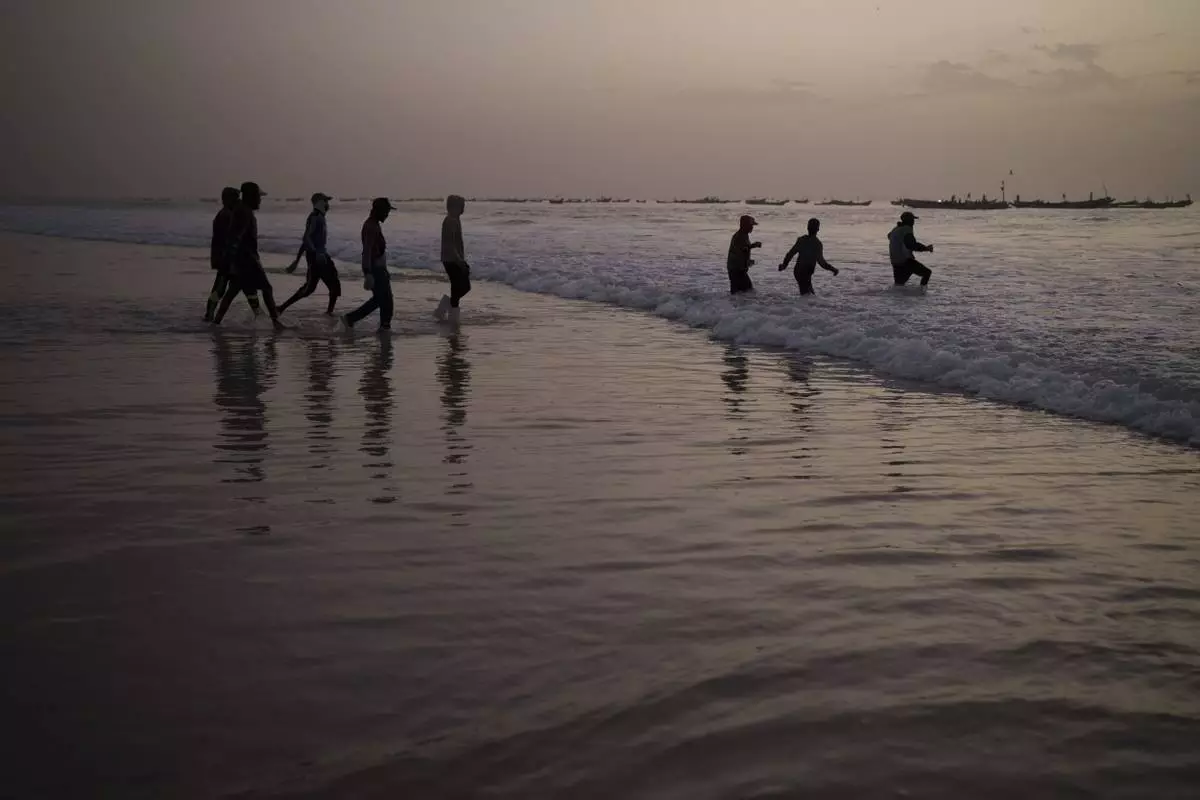
This image provided by World Press Photo is part of a multimedia project by Associated Press' Renata Brito and Felipe Dana titled Adrift, won the World Press Photo Africa Regional Winner Open Format category and shows young fishermen walk into the ocean to board an artisanal fishing boat in Nouakchott, Mauritania, Friday, Dec. 10, 2021. In May 2021 a boat from Mauritania full of dead men was found off the coast of the Caribbean Island of Tobago. Who were these men and why were they on the other side of the Atlantic Ocean? Two visual journalists sought answers, uncovering a story about migrants from West Africa who seek opportunity in Europe via an increasingly popular but treacherous Atlantic route. (AP Photo/Felipe Dana)
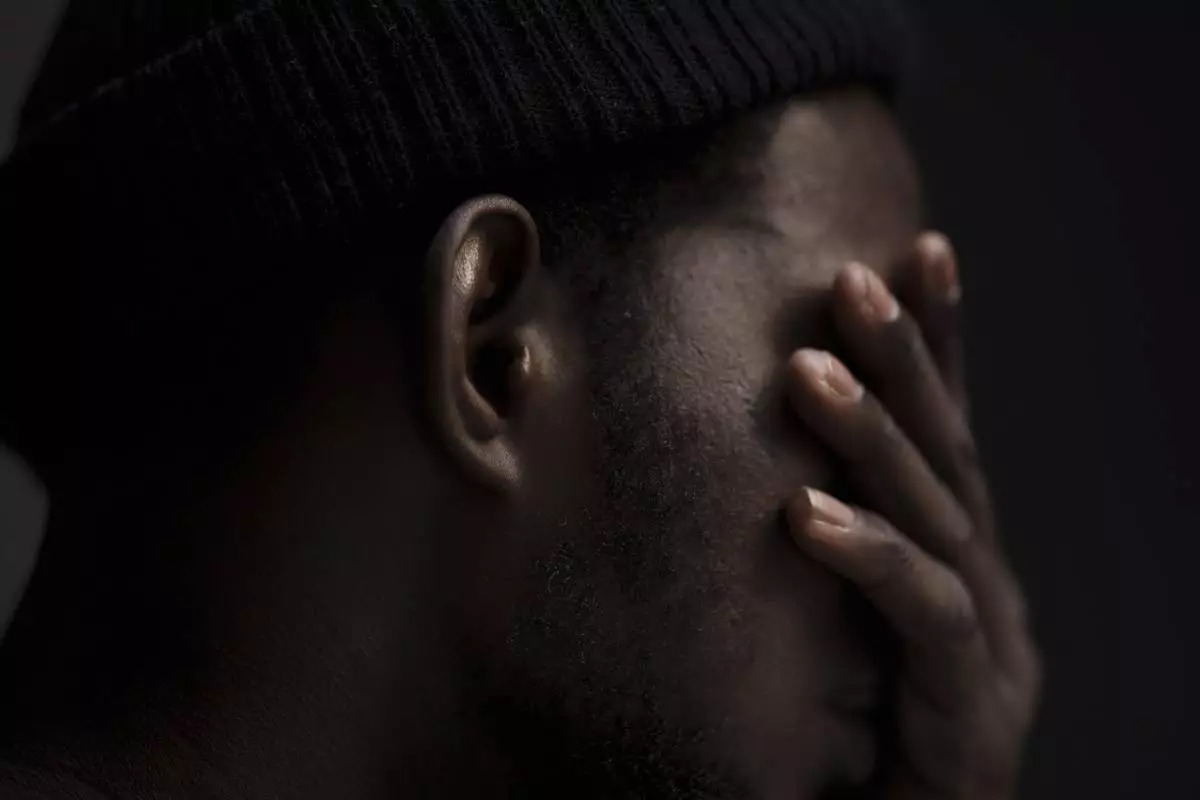
This image provided by World Press Photo is part of a multimedia project by Associated Press' Renata Brito and Felipe Dana titled Adrift, won the World Press Photo Africa Regional Winner Open Format category and shows Moussa Sako, an asylum-seeker from Mali, who survived 22 days aboard a Mauritanian boat drifting in the Atlantic Ocean covers his face during an interview with the Associated Press in Guadalajara, Spain, Sunday, Nov. 14, 2021. In May 2021 a boat from Mauritania full of dead men was found off the coast of the Caribbean Island of Tobago. Who were these men and why were they on the other side of the Atlantic Ocean? Two visual journalists sought answers, uncovering a story about migrants from West Africa who seek opportunity in Europe via an increasingly popular but treacherous Atlantic route. (AP Photo/Felipe Dana)
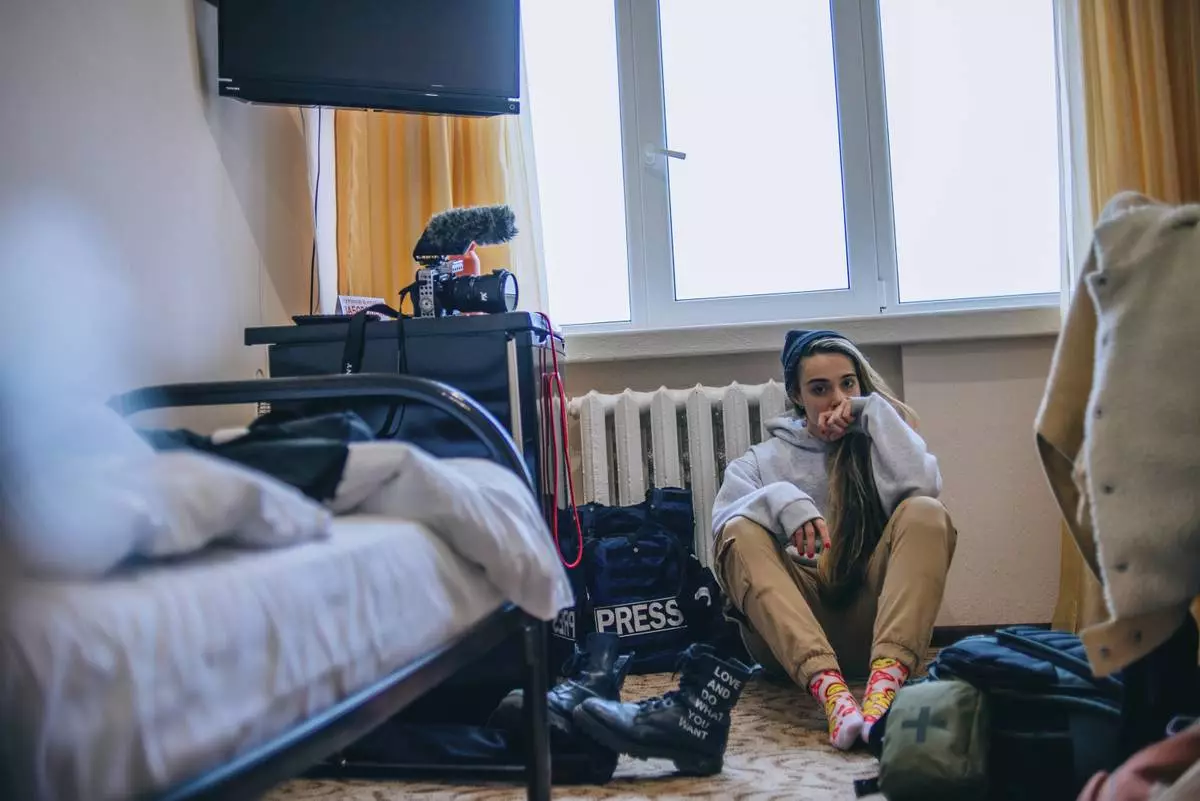
This image provided by World Press Photo and taken by Julia Kochetova is part of a series titled War is Personal which won the World Press Photo Open Format Award. Amidst tens of thousands of civilian and military casualties and an effective stalemate that has lasted for months, there are no signs of peace on the horizon for Russia's war in Ukraine. While news media updates its audience with statistics and maps, and international attention drifts elsewhere, the photographer has created a personal website that brings together photojournalism with the personal documentary style of a diary to show the world what it is like to live with war as an everyday reality. (Julia Kochetova/World Press Photo via AP)
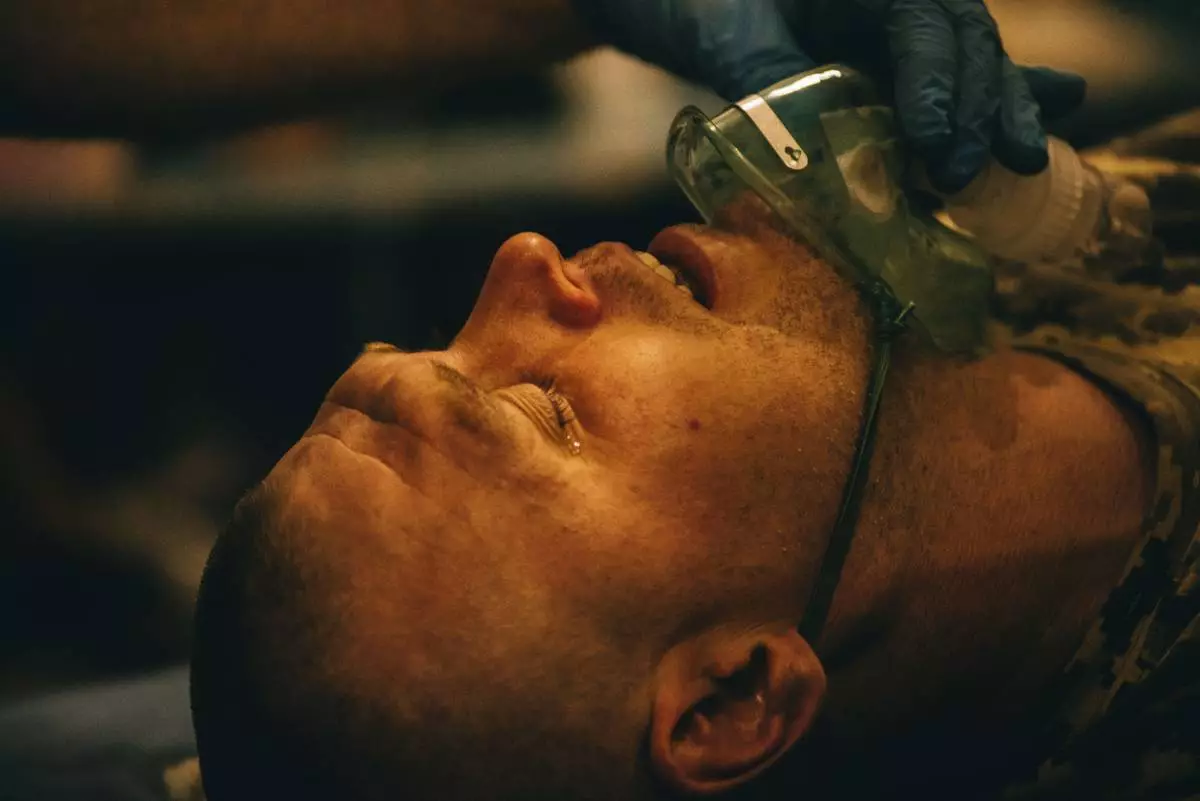
This image provided by World Press Photo and taken by Julia Kochetova is part of a series titled War is Personal which won the World Press Photo Open Format Award and shows a stabilization point near Bakhmut, Ukraine, of the 5th assault brigade and 77th brigade. Hospitalliers battalion - volunteer battalion of combat medics are helping here. Amidst tens of thousands of civilian and military casualties and an effective stalemate that has lasted for months, there are no signs of peace on the horizon for Russia's war in Ukraine. While news media updates its audience with statistics and maps, and international attention drifts elsewhere, the photographer has created a personal website that brings together photojournalism with the personal documentary style of a diary to show the world what it is like to live with war as an everyday reality. (Julia Kochetova/Der Spiegel/World Press Photo via AP)
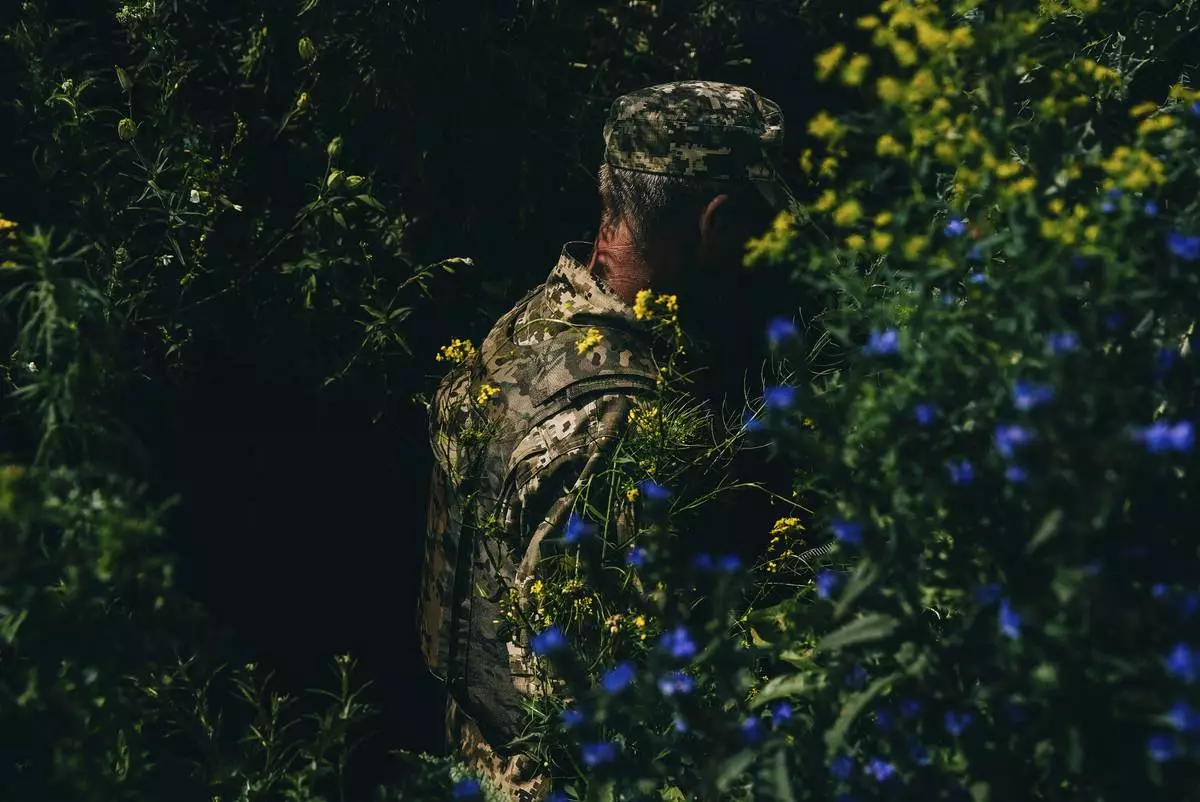
This image provided by World Press Photo and taken by Julia Kochetova is part of a series titled War is Personal which won the World Press Photo Open Format Award and shows the training of mobilized conscripts of 68th brigade in Donetsk region, not far from frontline. 68th brigade recently liberated Blagodatne village during the Ukrainian counter-offensive. The instructors came from US, working for NGO "Saber".Amidst tens of thousands of civilian and military casualties and an effective stalemate that has lasted for months, there are no signs of peace on the horizon for Russia's war in Ukraine. While news media updates its audience with statistics and maps, and international attention drifts elsewhere, the photographer has created a personal website that brings together photojournalism with the personal documentary style of a diary to show the world what it is like to live with war as an everyday reality. (Julia Kochetova/Der Spiegel/World Press Photo via AP)
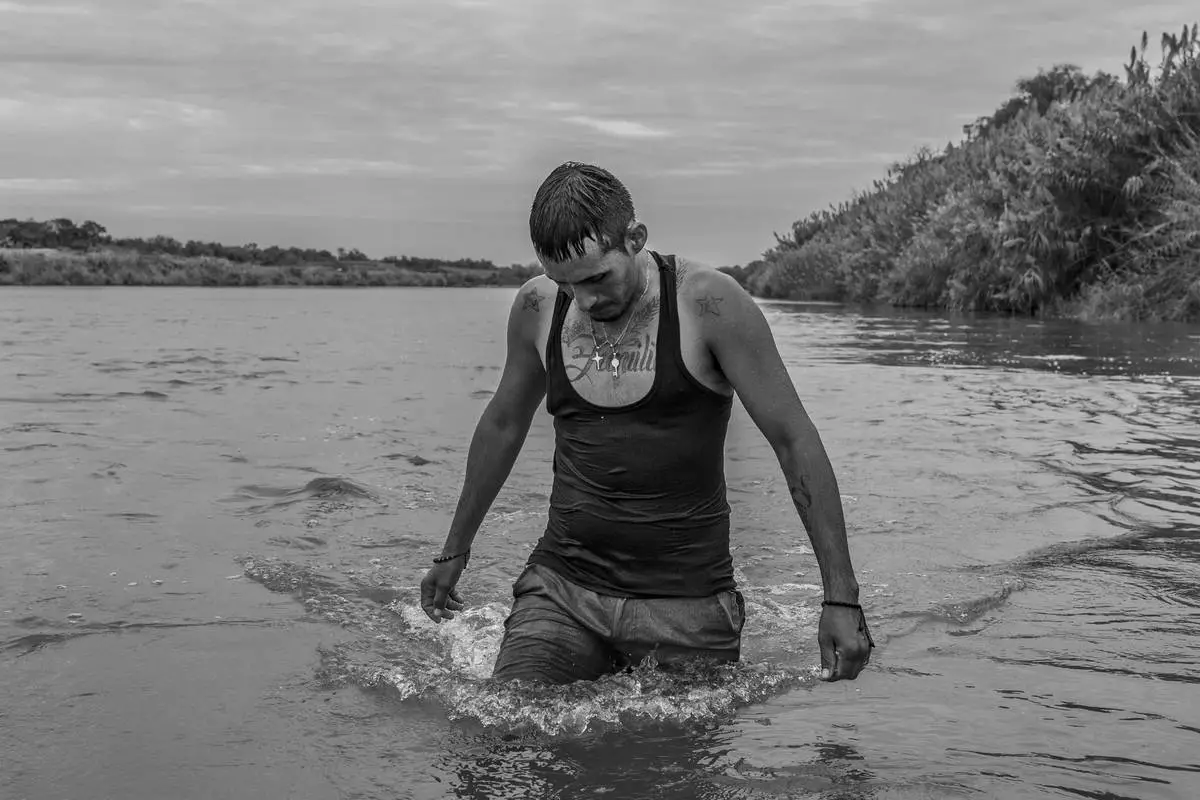
This image provided by World Press Photo and taken by Alejandro Cegarra for The New Times/Bloomberg is part of a series titled The Two Walls which won the World Press Photo Long-Term Project Award and shows Carlos Mendoza, a Venezuelan migrant, crossing the Rio Grande river to seek asylum in the United States. Piedras Negras, Mexico, 7 October 2023. (Alejandro Cegarra/The New York Times/Bloomberg/World Press Photo via AP)

This image provided by World Press Photo and taken by Alejandro Cegarra for The New Times/Bloomberg is part of a series titled The Two Walls which won the World Press Photo Long-Term Project Award and shows a migrant walking atop a freight train known as "The Beast." Migrants and asylum seekers lacking the financial resources to pay a smuggler often resort to using cargo trains to reach the United States border. This mode of transportation is very dangerous; over the years, hundreds have fallen onto the tracks and have been killed or maimed. Piedras Negras, Mexico, 8 October 2023. (Alejandro Cegarra/The New York Times/Bloomberg/World Press Photo via AP)
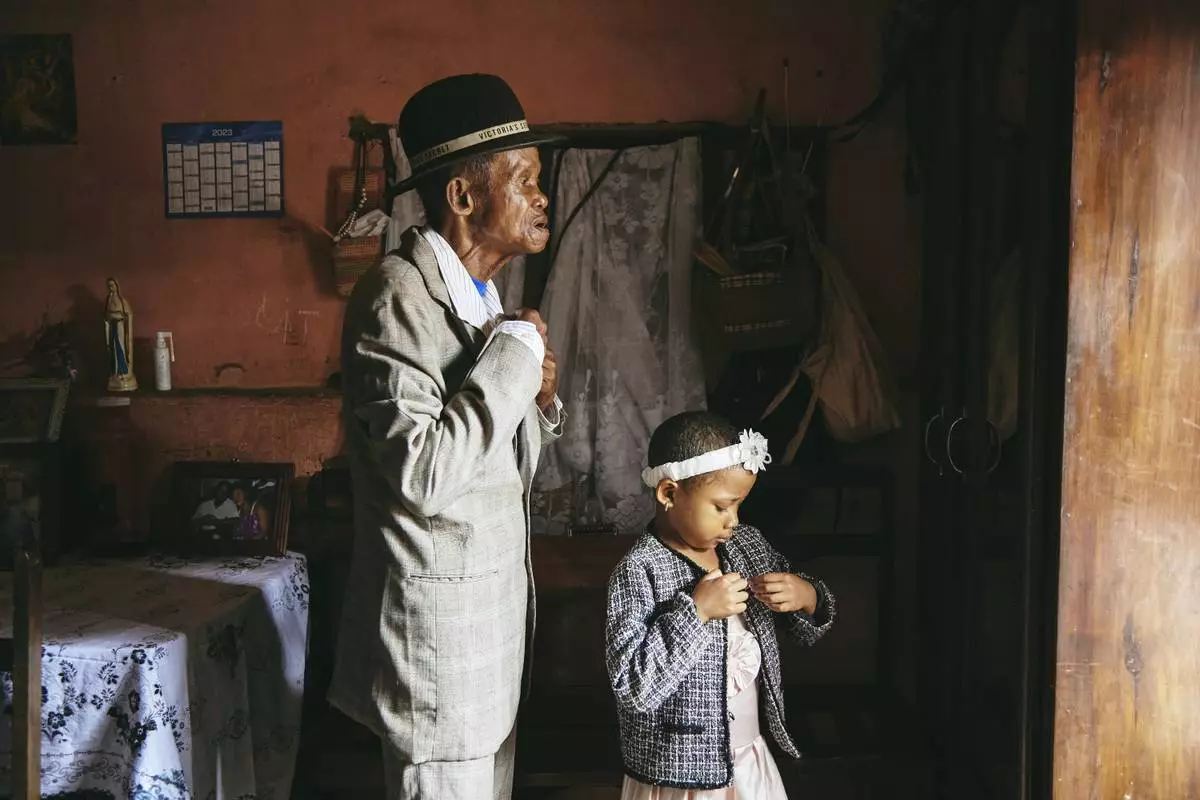
This image provided by World Press Photo and taken by Lee-Ann Olwage for GEO is part of a series titled Valim-babena which won the World Press Photo Story of the Year Award and shows Dada Paul Rakotazandriny (91), who is living with dementia, and his granddaughter, Odliatemix Rafaraniriana (5), get ready for church on Sunday morning at his home in Antananarivo, Madagascar. 12 March 2023. (Lee-Ann Olwage/Geo/World Press Photo via AP)
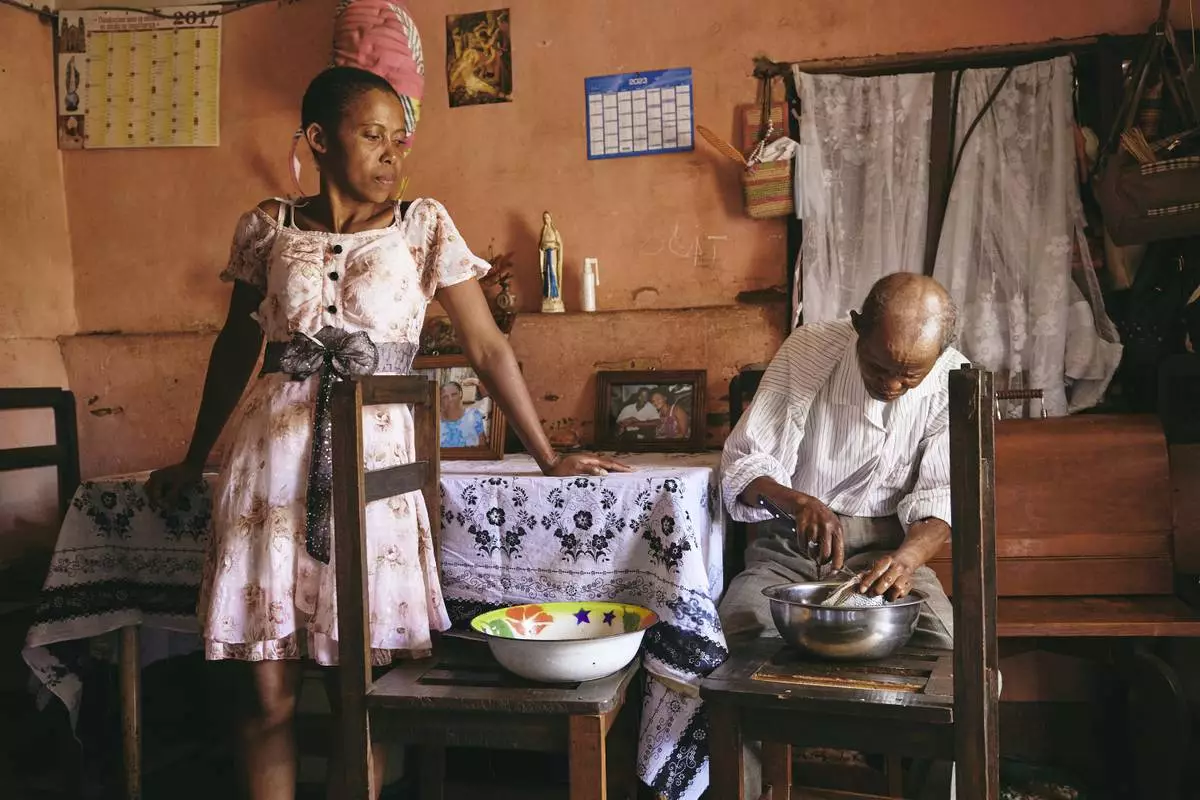
This image provided by World Press Photo and taken by Lee-Ann Olwage for GEO is part of a series titled Valim-babena which won the World Press Photo Story of the Year Award and shows Joeline (Fara) Rafaraniriana (41) watches her father, Dada Paul Rakotazandriny (91) clean fish at home on Sunday afternoon. A typical Sunday consists of the family attending church in the morning and spending time together in the afternoon. Fara works during the week and as the sole provider and carer for her daughter and father struggles to manage all her responsibilities in the absence of assistance by her siblings who live close by. Mandrosoa Ivato, Antananarivo, Madagascar. 12 March 2023. (Lee-Ann Olwage/Geo/World Press Photo via AP)
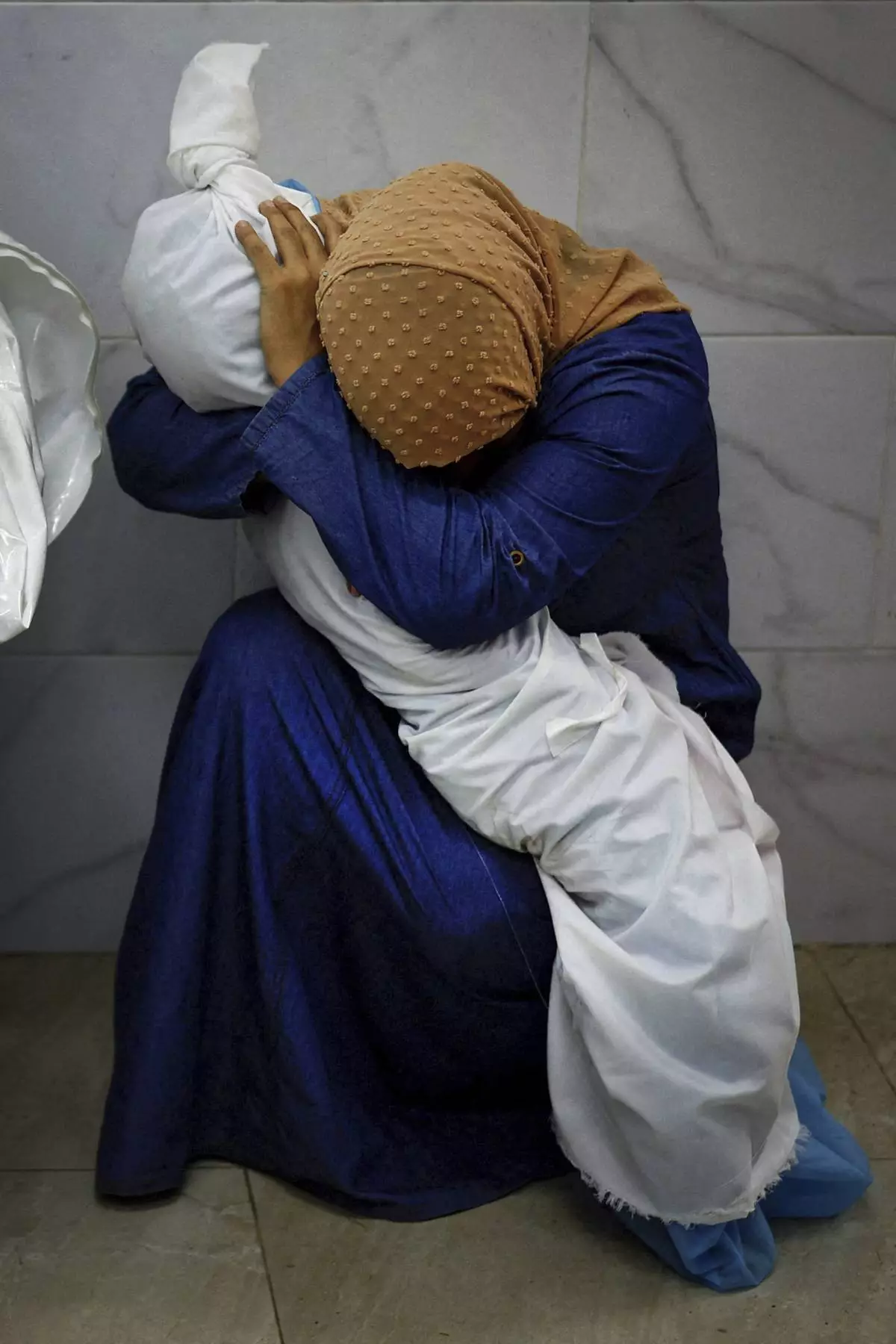
This image provided by World Press Photo and taken by Mohammed Salem of the Reuters news agency won the World Press Photo Award of the Year and shows Palestinian woman Inas Abu Maamar, 36, embracing the body of her 5-year-old niece Saly, who was killed in an Israeli strike, at Nasser hospital in Khan Younis in the southern Gaza Strip, October 17, 2023. (Mohammed Salem/Reuters/World Press Photo via AP)


























